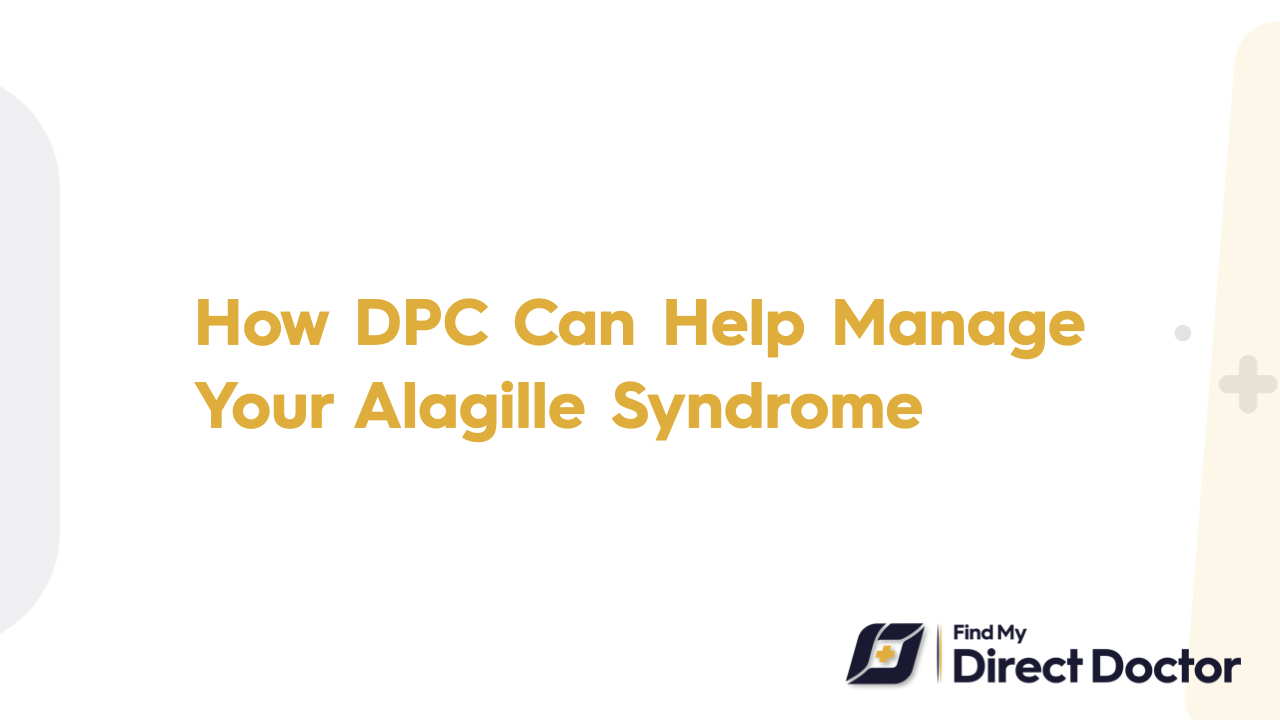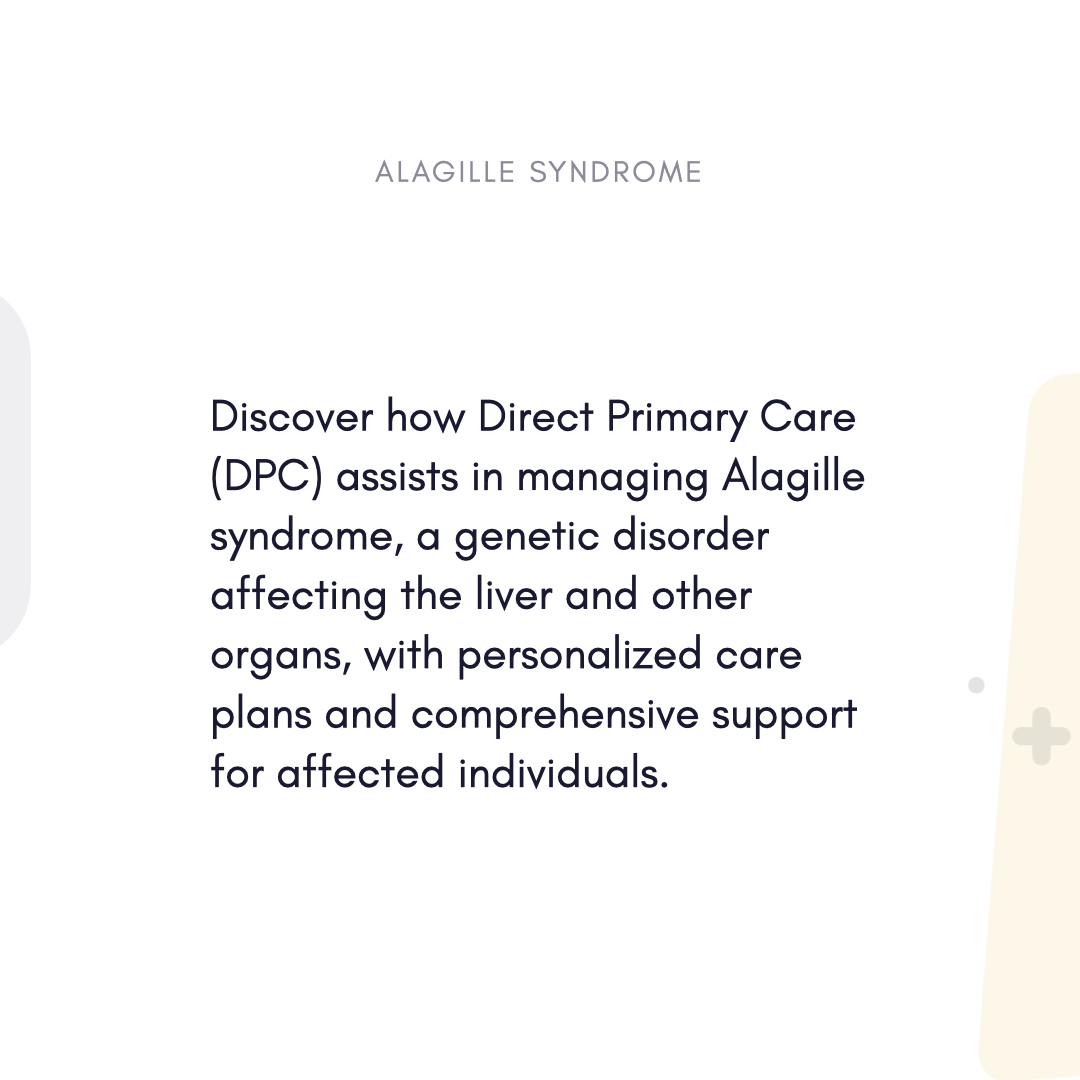



An anomaly in the liver, heart, and other organs is characteristic of Alagille syndrome, a rare genetic disorder. The diverse needs of individuals affected by Alagille syndrome require a multidisciplinary approach and customized care. Those living with this complex condition can greatly benefit from direct primary care (DPC), which provides a patient-centered model of healthcare. Let's explore how DPC can contribute to effective management of Alagille syndrome.

Various clinical features, including cholestasis (impaired bile flow), congenital heart defects, facial abnormalities, and skeletal abnormalities, result from mutations in the JAG1 or NOTCH2 genes that cause Algalille syndrome. In order to optimize outcomes, it is essential to provide personalized management based on the severity and combination of symptoms of affected individuals.
Alagille syndrome requires the coordination of hepatologists, cardiologists, gastroenterologists, geneticists, and other specialists to manage. In order to ensure holistic management of the condition and its complications, DPC providers facilitate communication and collaboration between members of the patient's healthcare team.
Patients have direct access to their primary care provider without the need for referrals in a DPC model. Having access to this information is particularly beneficial to patients with Alagille syndrome because it allows them to evaluate and manage symptoms promptly, detect complications early, and intervene to optimize their health outcomes as soon as possible.
The importance of holistic support cannot be overstated: Living with a complex condition like Alagille syndrome is challenging for patients and their families. In addition to addressing the medical aspects of the condition, DPC providers also address the emotional, social, and practical needs of patients and caregivers throughout the treatment process.
Each patient's treatment for Alagille syndrome is tailored to address their specific symptoms and complications. To optimize patient health and quality of life, DPC providers collaborate with specialists to develop customized treatment plans that incorporate medical interventions, dietary modifications, and supportive care measures.
Alagille syndrome patients require regular monitoring and surveillance to check their liver function, cardiac status, growth and development, and other relevant parameters. In order to monitor disease progression, detect complications early, and adjust management strategies as needed, DPC providers offer extended appointment times, flexible scheduling, and regular follow-up.
Alagille syndrome patients and their families can access educational resources and support groups through DPC providers. In order to better understand the condition, navigate healthcare challenges, and advocate for their needs, DPC provides information, guidance, and emotional support to patients and their caregivers.

In conclusion, Direct Primary Care offers significant advantages for individuals with Alagille syndrome. Providing comprehensive care coordination and access to healthcare services, personalized treatment plans, and holistic support, DPC helps patients manage and improve their condition effectively. Alagille syndrome patients can navigate their healthcare journey with confidence and resilience by embracing this patient-centered approach to healthcare.
Previous Post